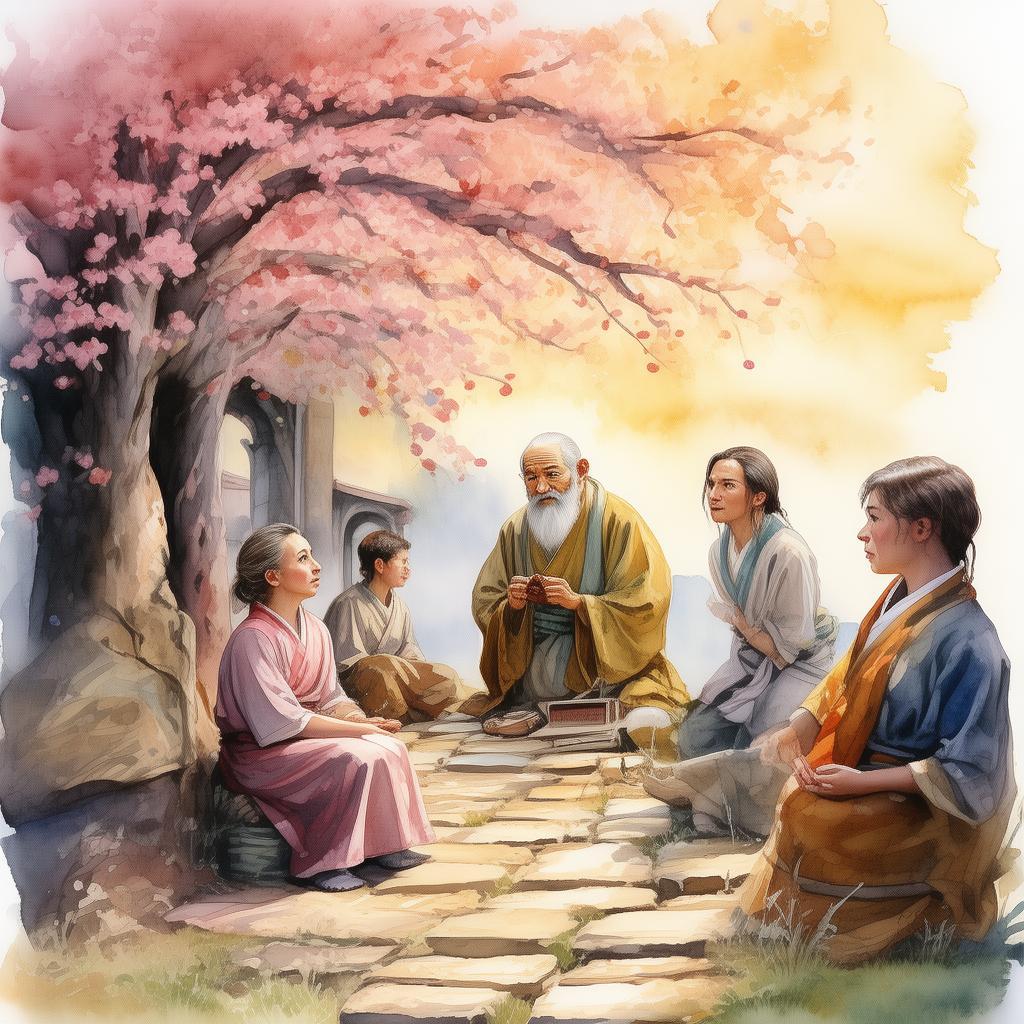The Chessboard of Fate: A Tale of Strategic Genius and Unseen Moves
In the heart of a bustling city, where the streets were alive with the sounds of the everyday, there lived a young man named Liang. His name was whispered in tones of awe and admiration, for Liang was not just any young man; he was a chess prodigy. At the tender age of twelve, he had already won numerous local and regional chess tournaments, his name etched into the annals of the game's history.
Liang's father, a former chess master himself, had always been his greatest mentor. He had taught Liang not just the rules of the game, but the art of strategy, the way in which the mind could outmaneuver the board and its pieces. "The game of chess is a mirror to the mind," his father would say, "and the greatest players are those who can see beyond the board."
One day, as Liang was practicing his moves in the dimly lit room of his home, a knock came at the door. It was an old friend of his father's, a man named Master Hua, who was known throughout the region for his unparalleled skill in the game. Master Hua held a small, ornate chessboard in his hands, its surface etched with intricate patterns that seemed to pulse with an ancient energy.
"Master Hua, what brings you here?" Liang asked, his curiosity piqued.
"I bring you a challenge," Master Hua replied, his eyes twinkling with mischief. "A challenge that will test not just your skill, but your mind's strength."
Liang nodded, understanding the gravity of the challenge. He had faced many opponents, but none had ever dared to challenge him in such a way. Master Hua set the board down before him and began to speak of a series of games, each more complex and intricate than the last. They were not to be played on the traditional board, but on a chessboard of fate, a board that would require not just skill, but a deep understanding of the human mind.
The first game was simple, a test of Liang's basic strategy. But as the pieces moved, Master Hua's eyes narrowed, and he began to speak of unseen moves, moves that were not on the board but in the mind of the player. Liang's mind raced, and he quickly realized that the true challenge was not in the moves themselves, but in the understanding of the opponent's mind.
The next game was more difficult, a labyrinth of possibilities that seemed to defy logic. Liang's father had once told him that the greatest chess players were those who could see the board not just as it was, but as it could be. Liang's mind was stretched to its limits, and he found himself questioning not just his own abilities, but the very nature of the game.
As the games progressed, Liang began to understand the true power of the mind's game. He learned that strategy was not just about the moves on the board, but about the moves in the mind. He learned that the greatest players were those who could see beyond the surface, those who could anticipate the unseen moves of their opponents.
The final game was a battle of wits, a game that would test Liang's mind to its very core. Master Hua sat across from him, his eyes piercing through the young man's thoughts. Liang's mind raced, and he found himself facing a decision that would change his life forever.

Would he play the game as he had always played it, with skill and strategy? Or would he embrace the unseen moves, the moves that were not on the board but in the mind?
In the end, Liang chose the unseen moves. He played the game not just with his hands, but with his mind. And in that moment, he discovered the true power of the mind's game, the power to see beyond the board and into the depths of human potential.
Master Hua smiled, a rare expression on his face. "You have won, Liang," he said. "Not just the game, but the true essence of the game itself."
Liang looked at the chessboard, its pieces still, but now imbued with a new meaning. He had learned that the game of chess was not just a game, but a mirror to the mind, a reflection of the human spirit. And in that reflection, he had found his true self.
From that day forward, Liang's name was no longer just whispered in tones of awe and admiration. It was shouted in triumph, for he had not only mastered the game of chess, but the game of the mind itself.
✨ Original Statement ✨
All articles published on this website (including but not limited to text, images, videos, and other content) are original or authorized for reposting and are protected by relevant laws. Without the explicit written permission of this website, no individual or organization may copy, modify, repost, or use the content for commercial purposes.
If you need to quote or cooperate, please contact this site for authorization. We reserve the right to pursue legal responsibility for any unauthorized use.
Hereby declared.









